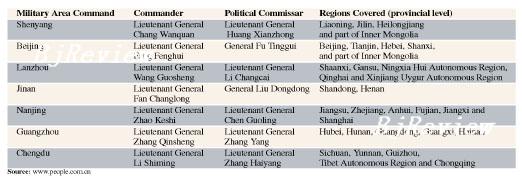|
China has been increasingly open when talking about its military affairs through frequent exchanges and cooperation. To date, it has come out with six white papers concerning national defense. Since 2002, it has held 18 joint military exercises with 11 countries, all of which were open to the media. Meanwhile, China has played a growing role by joining more UN peacekeeping and disaster-relief missions to save lives of people all over the world. Starting from the 1990s, China has sent 5,915 peacekeepers on 16 missions, of which eight were killed on duty. China's efforts in assisting the affected population of the Indian Ocean tsunami disaster in 2004, Pakistan earthquake in 2005 and Indonesia earthquake in 2006, won wide acclaim. Also, China's irreplaceable role in the six-party talks for denuclearization of the Korean Peninsula and Iran nuclear issue has helped enhance China's role as a guardian of world peace.
China had strictly performed its obligations pursuant to the UN Register of Conventional Weapons. However, a certain country had provided data on its illegal arms sales to Taiwan, a province of China, for the Register since 1996, which violates relevant resolutions of the UN General Assembly and principles of the military transparency mechanism. In response, China suspended its register obligations and did not resume the practice until the concerned country had recently stopped its previous wrongdoings. China has drawn its line at no damage and harm to its self-interest and sovereignty, when it performs the obligations that it has undertaken.
The transparency is not absolute, but limited. The Western powers, which are provoking wider openness of military transparency, have clear rules in controlling the range, timing and way of openness. The more they disclose, the more they will be preserved. In a bid to prevent leakage of secrets, the U.S. Department of Defense has a special regulation on foreign military exchanges, in which secrets concealed in a system of four levels. Likewise, the release of sensitive defense data will have to get approval from secretary of defense or head of the Defense Intelligence Agency in Britain. British service people are required to report to officers in charge of media liaison of higher levels before accepting interviews or publishing articles, or other related information. German officers are even more disciplined since neither department nor individual is entitled to release military information due to central controls.
Military transparency issue is substantially a touchstone of mutual trust that is more crucial than transparency itself. The Chinese army has shown its willingness to raise transparency to win more trust, but it has hardly been accepted by the West-led international community. The theory of "China threat" is vicious enough to inflate China's military strength and it is used as a way to attack China's ongoing defensive modernization. Though China has constantly enhanced contacts and exchanges with the West, it is still accused of being militarily opaque.

The level of military transparency cannot be identical in different countries, because it is impractical to impose the same standard on every nation. For rich nations military transparency may be a tool to deter others, while for smaller ones a certain level of opaqueness is sometimes of vital importance to self-defense.
For this purpose, military transparency should be rooted in several basics: First, volunteer willingness to join transparency programs should be respected and there should be no interference into any other's internal affairs. Second, military transparency should be mutual. Third, militarily powerful countries should lead in both the transparency level and disarmament efforts. Fourth, the process of openness should be promoted step by step. Fifth, intention prioritizes, which means transparency at a strategic level is more vital than that at a technical level.
|
China's Seven Military Area Commands
Military area commands (theaters of war) are military organizations set up according to the administrative divisions of the state, geographical locations, strategic and operational directions, and operational tasks. They are Central Military Commission (CMC)-appointed organs for commanding joint theater operations. They direct the military, political, logistical and equipment work of the troops under them. Under a military area command are the headquarters, the political department, the joint logistics department and the armaments department. A military area command is mainly in charge of formulating programs and plans for combat readiness and operations of troops in the theater and for the reserve force buildup of the theater, organizing and commanding joint theater operations involving different services and arms, and providing joint logistical support. At present, the PLA has seven military area commands, namely, Shenyang, Beijing, Lanzhou, Jinan, Nanjing, Guangzhou and Chengdu. Under a military area command are combined Army corps, units of various Army arms, logistical support units and provincial military commands (garrison commands at the same level). |
|
